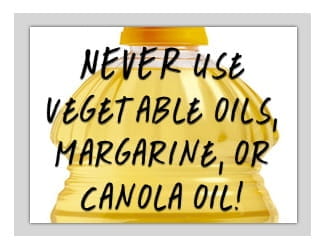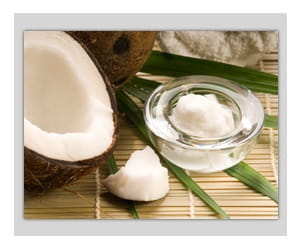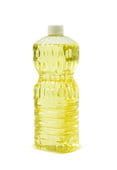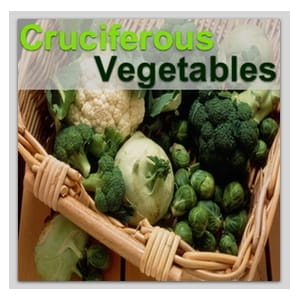Some of these oils are healthy and some are VERY unhealthy -- soybean oil, olive oil, coconut oil, corn oil, etc... Let's take a closer look.
Today, I wanted to give you my take on a confusing subject to most people:
...why some oils and fats you may use in cooking, baking, or other food use are actually harmful to your body, and why some are healthful.
Here's the deal...
A lot of people seem to think that anything labeled as "vegetable oil " is good for you. NOT A SHOT!
Most of what is labeled as "vegetable oil" is simply heavily refined soybean oil (processed under high heat, pressure, and industrial solvents, such as hexane)... sometimes perhaps it may also be heavily refined cottonseed, safflower, corn, grapeseed, or other oils too.
In most instances, almost all of these processed oils are NOT HEALTHY for you. I'll explain why below...
If you buy processed food or deep fried food, you can usually be certain that these unhealthy oils are used to prepare your foods (or worse, it may use hydrogenated versions of these oils... aka - trans fats).
You may have even bought some of these oils for your own cooking or baking at home.
The problem with soybean oil, cottonseed oil, corn oil, safflower oil, and other similar "vegetable oils" is that they are mostly composed of polyunsaturated fats (the most highly reactive type of fat) which leaves them prone to oxidation and free radical production when exposed to heat and light.
Processed polyunsaturated oils are the most inflammatory inside our bodies because of their high reactivity to heat and light. This inflammation is what causes many of our internal problems to develop such as heart disease, cancer, and other degenerative diseases.
Note: It's ok if a polyunsaturated fat source isn't processed such as in whole foods like various nuts and seeds... In that case it's usually not inflammatory (as long as it's not been exposed to high heat), and nuts are usually a great source of healthy polyunsaturated fats. By the way, omega-6 and omega-3 fatty acids are both polyunsaturates, and a healthy balance of approx 1:1 to 3:1 ratio of omega-6 to omega-3 is considered healthiest.
Your best bet is to choose raw nuts and seeds whenever possible to avoid the oxidation of polyunsaturated fats that can occur during roasting of nuts and seeds. Keep in mind though that some nuts are mostly monounsaturated, (for example, macadamias), so the issue of roasted vs raw nuts is less of an issue for highly monounsaturated nuts.
However, all of the vegetable oils listed above are generally heavily refined during processing, so that makes them already inflammatory before you even cook with them (which does even more damage).
Here's the actual order of stability of a type of fat under heat and light (from least stable to most stable):
1. polyunsaturated
2. monounsaturated
3. saturated
Here's something that mainstream health professionals will never tell you...
Saturated fats are actually the healthiest oils to cook with!
Why? Because they are much more stable in cooking conditions and less inflammatory than polyunsaturated oils with cooking.
This is why tropical oils such as palm and coconut oils (and even animal fats such as lard and butter) are best for cooking... they have very little polyunsaturates and are mostly composed of natural saturated fats which are the least reactive to heat/light and therefore the least inflammatory in your body from cooking use.
That's also why natural butter (NOT margarine) is one of the best fats for cooking. This all goes directly against what you hear in mainstream health talk... because most health professionals don't truly understand the biochemistry of fats, and falsely believe that saturated fats are bad for you... when in fact, they are actually neutral in most instances... and saturated fats from tropical oils are actually good for you as they contain mostly medium chain triglycerides (MCTs) which are lacking in most people's diets.
In fact, lauric acid is one of the abundant MCTs in tropical oils and is known to strengthen the immune system. Lauric acid is even being studied currently in medical studies for controlling contagious diseases.
The mostly polyunsaturated oils such as soybean, corn, grapeseed, cottonseed, safflower, etc, are the least healthy for cooking or baking.
My choices for top healthy cooking oils that I use :
- Virgin Coconut Oil (very stable at med-high temps and healthy fats)
- Extra Virgin Olive Oil (only for low temp cooking)
- Real Butter (grass fed butter is actually healthy and contains important nutrients like vitamin K2, omega-3's, and CLA. Kerrygold is a popular brand of Irish butter that's grass-fed and readily available in most grocery stores)
Of course, with all of that said... we should keep in mind that trying to minimize our cooking with oils can help to reduce overall calories. Cooking with oils in moderation is okay and can actually help satisfy your appetite more but be careful not to overdo it as the calories can add up fast.
Also, please don't be fooled by deceptive marketing claiming that canola oil is healthy for you -- it's NOT!
So, enjoy your coconut oil, grass-fed butter, and delicious extra-virgin olive oils knowing that you're doing your body GOOD! But just make sure to stay FAR AWAY from dangerous inflammatory vegetable oils like soybean oil, corn oil, and cottonseed oils which are used in so many processed foods these days.
Also remember that most salad dressings you find at the store are loaded with unhealthy soybean or canola oils usually, so make your own with healthy olive oil instead.
But BEWARE...
Although using real butter, coconut oil, & extra virgin olive oil can be a super-healthy choice for a lean, healthy, & strong body as well as fighting the aging process, if you follow the tips, you just learned...
https://aff61bz25k.mikegeary1.hop.clickbank.net/?pid=5881&tid=aff61bz25k

.jpg)







.jpg)
